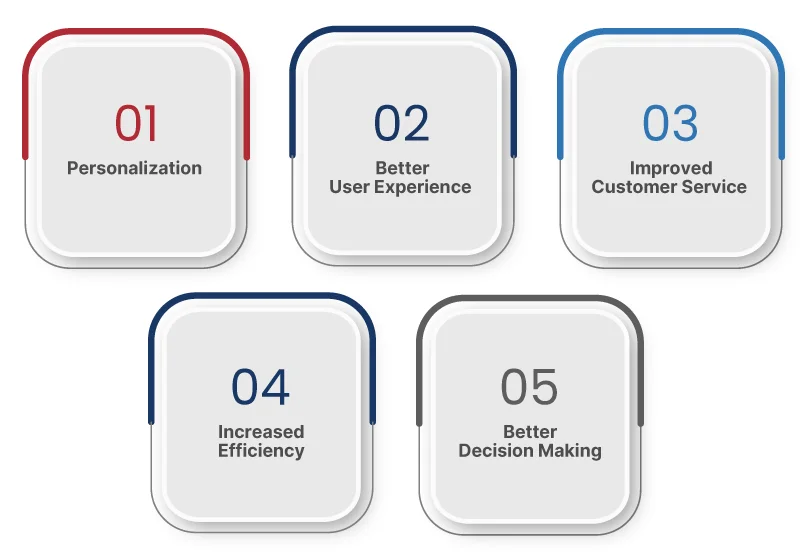Recommended Blogs

Adaptive AI: A Game-Changer in the World of Artificial Intelligence
Table of Content
- How Does Adaptive AI Work?
- Importance of Adaptive AI in Today’s World
- Why Adaptive AI matters today?
- Common Adaptive AI Techniques Leveraged by Digital Businesses
- Real-world Examples of Adaptive AI
- Key Advantages of Adaptive AI
- What are the Tools for Adaptive AI
- How Is Adaptive AI Used in QA and Operations?
- Adaptive AI Integration with Enterprise Systems
- What is the Future of Adaptive AI?
- Conclusion
- How TestingXperts Helps Businesses with AI Testing?
- TestingXperts’ AI Testing Differentiators
Artificial intelligence that learns from new information and changes how it acts is called adaptive AI. It keeps improving by learning from real-time feedback, user behavior and changes in the environment. It doesn’t have to follow set rules or be trained just once.
This makes the system more adaptable and correct over time. Machine learning and reinforcement learning are two methods it uses to find patterns, make better choices and deal with new situations without having to be updated manually.
Traditional AI vs Adaptive AI
Traditional AI systems use pre-programmed reasoning and models. Once used, they only work within the limits of their training data and don’t get better unless re-trained by hand. When it comes to routine, known tasks, these systems work well but often struggle with new information or situations they are not used to.
On the other hand, adaptive AI is made to change over time. It’s always learning from new information, feedback and changes in its environment. Because it knows on the fly, it can change how it acts and what it does without having to be programmed again. In short, adaptive AI is flexible and quick to respond, while standard AI stays the same.
How Does Adaptive AI Work?
Adaptive AI learns from feedback loops, data streams, and user interactions. Its algorithms are changed almost instantly when the situation, environment or human behavior changes, which is different from static models.
To achieve this, ML techniques like reinforcement learning, online learning and dynamic neural networks are used. These models are designed to refine their predictions and responses. The key is that the system doesn’t just store knowledge; it evolves based on how it’s used and what it encounters.
For businesses, this means systems that become more accurate, efficient and relevant the more they are used.
Importance of Adaptive AI in Today’s World
The importance of adaptive AI in today’s world cannot be overstated. As the amount of data generated by individuals and businesses continues to grow, the ability to analyze and make sense of that data will be essential for success in virtually every industry. Adaptive AI systems are uniquely positioned to provide this analysis, making them a critical tool for organizations of all kinds.
One of the key advantages of adaptive AI is its ability to personalize experiences for individual users. Adaptive AI also has important implications for businesses, as it can help companies optimize their operations and improve customer engagement. By analyzing data on user behavior and preferences, adaptive AI systems can provide tailored recommendations, search results, and other content that is more relevant and useful to each individual user.
Why Adaptive AI matters today?
The importance of adaptive AI today cannot be overstated. As the amount of data generated by individuals and businesses continues to grow, the ability to analyze and make sense of that data will be key to success in almost every industry. Adaptive AI systems are best placed to provide that analysis. That’s why they are a must-have for all organizations. The key benefit of adaptive AI is personalization. Adaptive AI has big implications for businesses as it can help companies optimize their operations and customer engagement. Adaptive AI systems analyze user behavior and preferences. This analysis allows them to provide personalized recommendations, search results, and other content.
Common Adaptive AI Techniques Leveraged by Digital Businesses
Adaptive AI is one such technique that enables businesses to make decisions based on real-time data and user behavior. Here are some of the most common adaptive AI techniques used by digital businesses:
Machine learning:
Machine learning is a subset of AI that enables machines to learn from data and improve their performance over time. Digital businesses use machine learning algorithms to analyze user behavior, identify patterns, and make predictions. This technique is commonly used in recommendation engines, fraud detection systems, and chatbots.
Natural language processing (NLP):
NLP is a branch of AI that enables machines to understand and interpret human language. Digital businesses leverage NLP to build chatbots and virtual assistants that can understand customer queries and provide relevant responses. This technique is also used in sentiment analysis, where businesses analyze customer feedback to gauge their satisfaction levels.
Predictive analytics:
Predictive analytics is a technique that uses data mining, machine learning, and statistical algorithms to predict future outcomes based on historical data. Digital businesses use predictive analytics to forecast sales, identify customer churn, and optimize marketing campaigns. This technique enables businesses to make data-driven decisions and stay ahead of the competition.
Personalization:
Personalization is a technique that uses AI to tailor content and recommendations to individual users based on their preferences and behavior. Digital businesses use personalization to improve the customer experience and increase engagement. This technique is commonly used in e-commerce, where businesses recommend products based on a user’s browsing and purchase history.
Adaptive testing:
Adaptive testing is a technique that uses AI to adapt the difficulty level of tests based on a user’s performance. Digital businesses use adaptive testing to improve learning outcomes and provide personalized feedback to users. This technique is commonly used in online education platforms and certification programs.
Overall, adaptive AI techniques enable digital businesses to make data-driven decisions, improve customer experience, and stay ahead of the competition. As the digital landscape continues to evolve, businesses that leverage these techniques will have a competitive advantage in the market.
Real-world Examples of Adaptive AI
In 2026, adaptive AI will be used in many industries. It helps businesses be flexible, fast and personalized. Using real-time data and continuous learning, it’s changing how businesses work and make decisions.
Healthcare
Adaptive AI This technology has a wide range of real-world applications across multiple industries, from healthcare to finance. But it takes skill to develop effective AI solutions. Here’s how businesses from various industries are using adaptive AI, usually with the help of AI consulting firms.
Finance
Banks and fintech companies are deploying adaptive AI to detect fraud, personalize banking experiences and respond to changing financial behavior. AI models update regularly, helping systems find unusual transaction patterns and offer customized loan recommendations or investment advice. In 2025, adaptive AI also supports algorithmic trading that adjusts to market volatility without human input.
Education
Online learning platforms now use adaptive AI to tailor lessons, quizzes and feedback to each student’s pace and performance. In 2025, EdTech platforms will use data from student engagement and assessments to create dynamic learning paths. This will improve retention, reduce dropout rates and make learning more interactive and student-centric.
Transportation
Urban traffic systems use adaptive AI to manage congestion by analyzing traffic flow, road conditions and commuter patterns. In 2025, many cities have integrated AI to adjust signal timings, suggest alternative routes and improve public transport scheduling. This has resulted in fewer delays and more efficient transport systems.
Manufacturing
Smart factories use adaptive AI to improve production efficiency and reduce downtime. AI systems learn from machine data to predict equipment failures and optimize resource usage. In 2025, manufacturers will combine IoT with adaptive AI to fine-tune operations in real-time and cut down on energy consumption and waste.
Key Advantages of Adaptive AI

Here are some key advantages of adaptive AI:
Personalization:
Adaptive AI may personalize information, products and services to you. This may make you feel like the system was built for you and may interest you.
Better User Experience:
Adaptive AI can make things simpler and more intuitive for users. It can figure out what users need and then provide suggestions and recommendations.
Improved Customer Service:
Adaptive AI can improve customer service by providing personalized solutions. Automating routine tasks can help businesses save time and money.
Increased Efficiency:
Adaptive AI can streamline business processes by taking over jobs that would typically be done by a person. This can make things run smoothly and efficiently. This saves you time and money.
Better Decision Making:
Adaptive AI can help organizations make better decisions by telling them how users behave and what they want. It can also find trends and patterns in user data to help businesses run efficiently.
Adaptive AI may change how businesses talk to customers and run their operations. It can help businesses stay ahead of the competition in a crowded market by giving customers unique experiences and insights into how they use products.
What are the Tools for Adaptive AI
Adaptive AI utilizes a combination of platforms and frameworks that enable continuous learning and real-time decision-making.
- Machine learning platforms enable you to retrain models using data that is constantly being generated.
- Reinforcement learning frameworks enable systems to make better decisions by analyzing the outcomes of their actions.
- Monitoring and feedback systems keep an eye on drift, strange behavior, and performance loss.
Scalability, integration support, explainability, and governance controls are all common factors that contribute to the decision of choosing a tool.
How Is Adaptive AI Used in QA and Operations?
Adaptive AI is becoming increasingly important in both quality assurance and operational workflows because it responds to signals in real-time, rather than following predefined rules.
In QA
- Dynamic test case generation based on changes to the application
- Smartly putting tests in order based on risk and usage trends
- Finding problems early in test results and workflows
In Operations
- Using live system telemetry for predictive maintenance
- Automated detection of the fundamental cause of occurrences
- Ongoing improvement of performance
These use cases make things faster and more reliable while reducing the amount of manual work required.
Adaptive AI Integration with Enterprise Systems
When integrating adaptive AI into a business context, it must work seamlessly with the existing tools, data pipelines, and governance models.
- APIs and connectors connect AI models to CI/CD, monitoring, and business systems.
- Data flows are set up to always receive and provide feedback.
- Guardrails make sure that security, compliance, and version control are all in place.
The key to successful integration is not replacing existing systems but rather adding to what currently works.
What is the Future of Adaptive AI?
The future of Adaptive AI is poised to revolutionize industries across the board. Adaptive AI refers to the ability of an AI system to learn and adapt over time, improving its performance and accuracy based on experience and feedback. This allows the AI system to make better decisions and predictions, as well as to handle more complex tasks.
With the potential to transform industries and improve lives in countless ways, the future of Adaptive AI is incredibly exciting. However, it is important to approach these advancements with caution and to ensure that they are developed and implemented in an ethical and responsible manner.
Conclusion
Adaptive AI is an exciting and rapidly growing field of artificial intelligence that has the potential to revolutionize many industries. Its ability to learn and adapt in real-time makes it a powerful tool for solving complex problems and improving decision-making processes. However, it is also important to consider the ethical and societal implications of these technologies as they continue to develop.
How TestingXperts Helps Businesses with AI Testing?
TestingXperts (Tx) is one of the top 3 pure-play software testing services providers globally. Tx has been chosen as a trusted QA partner by Fortune clients and delivers superior testing outcomes for its global clientele. We have rich experience in providing end-to-end testing services to global clients across various industry domains like healthcare, telecom, BFSI, retail & eCommerce, etc. With our domain knowledge and over a decade of pure play testing experience, the company has been serving the global clientele with high-quality next-gen testing services to deliver superior solutions to clients.
We offer cutting-edge testing services to help you ensure your AI systems are performing optimally. Our testing services are designed to help you stay ahead of the competition by giving you the insights you need to make informed decisions about your AI systems.
TestingXperts’ AI Testing Differentiators
Full testing:
Our AI testing services cover all aspects of your AI systems and AI models, including data pipeline and data processing, algorithmic performance, and system integration. This ensures that you receive a comprehensive analysis of your AI system’s performance.
Adaptive testing:
Our testing services are designed to adapt to your AI system’s changing needs. As your AI system evolves and learns, we adjust our testing methods to ensure that we are providing you with the most accurate and up-to-date insights.
Experienced team:
The experts on our team have been testing and validating AI systems for years. We bring a lot of experience to every testing project, so you can be sure you’ll get the best testing services.
State-of-the-art tools and in-house accelerators:
We use the latest tools and accelerators to give you the most accurate and reliable results. Our tools are designed to be efficient and effective. This reduces testing time and maximizes insights.
Our Services:
Data quality testing:
We test the quality of your data to ensure that it is clean, accurate, and relevant to your AI system’s needs. This helps to ensure that your AI system is making informed decisions based on high-quality data.
Algorithmic testing
We test your AI system’s algorithms to ensure they are performing optimally. This ensures your AI system is making the right decisions and predictions.
Integration testing
We test your AI system with other systems and platforms to ensure it’s working smoothly and efficiently. This ensures your AI system is part of your business processes and workflows.
Performance Testing
We test your AI system to meet your performance criteria. This ensures your AI system delivers what you need on time.
FAQs
Generative AI focuses on creating new content, data, or experiences based on learned patterns from existing data.
Adaptive AI focuses on learning and improving its performance in real-time based on new data or environmental changes.
Here are some key advantages of adaptive AI:
- Increased Personalization
- Improved User Experience
- Increased Efficiency
- Better Decision Making
- Data Quality & Bias – Inaccurate or biased data affects AI decisions.
- Complexity & High Costs – Requires advanced infrastructure and expertise.
- Security & Privacy Risks – Continuous learning raises data privacy concerns.
- Lack of Transparency – Hard-to-interpret decisions create trust issues.
- Regulatory & Ethical Concerns – Compliance with evolving AI laws is challenging.
- Integration with Existing Systems – Adapting AI into workflows is complex.
- Performance Monitoring & Drift – AI models need continuous tuning for accuracy.
ChatGPT, created by OpenAI, shows just how much AI can change the way we learn and teach.
Adaptive AI refers to artificial intelligence systems that continuously learn and evolve from real-time data and user interactions. Unlike traditional AI models, which rely on static training data, adaptive AI can dynamically adjust its responses, improve decision-making, and optimize performance over time. This makes it more flexible, resilient, and capable of handling changing environments without requiring constant manual updates.
Discover more


